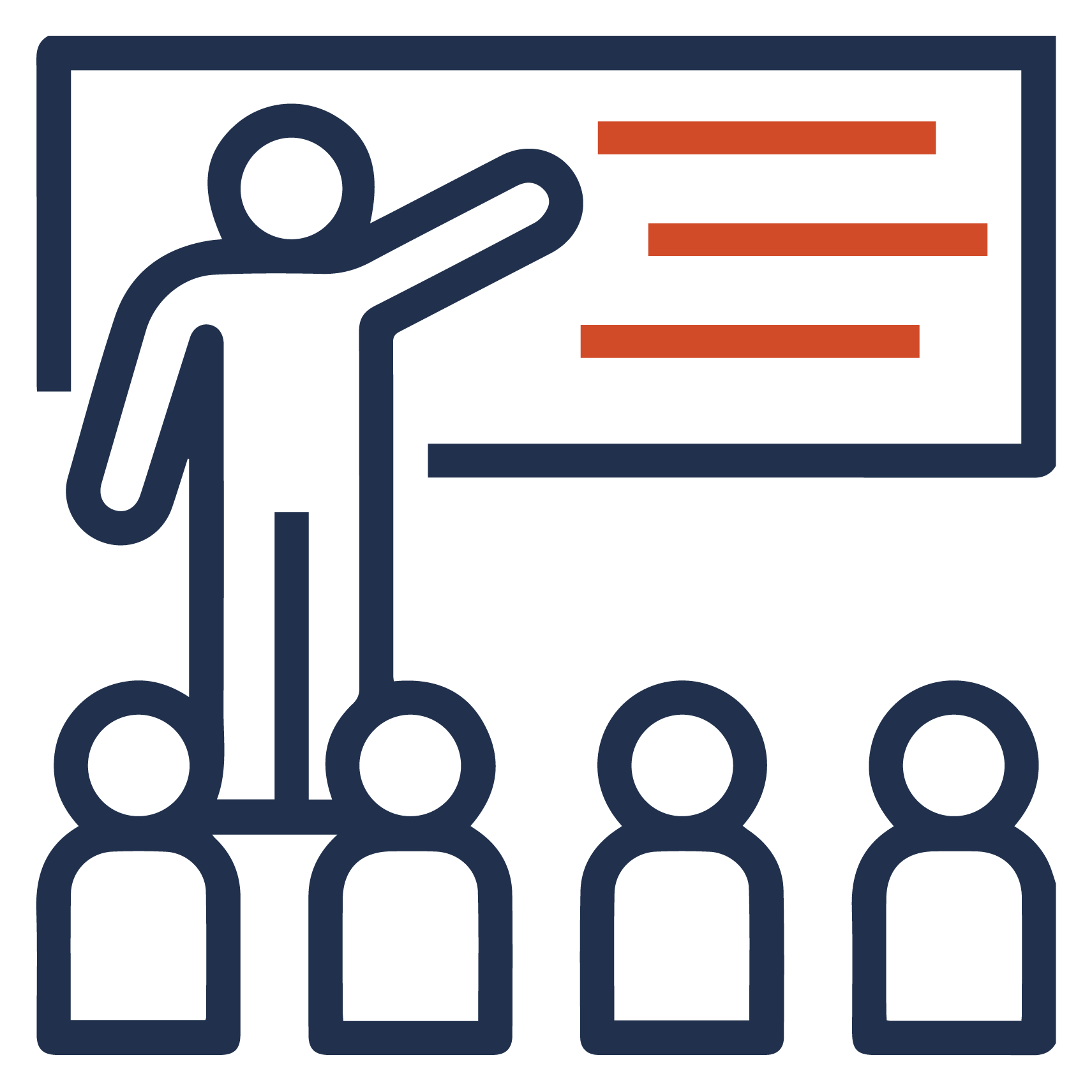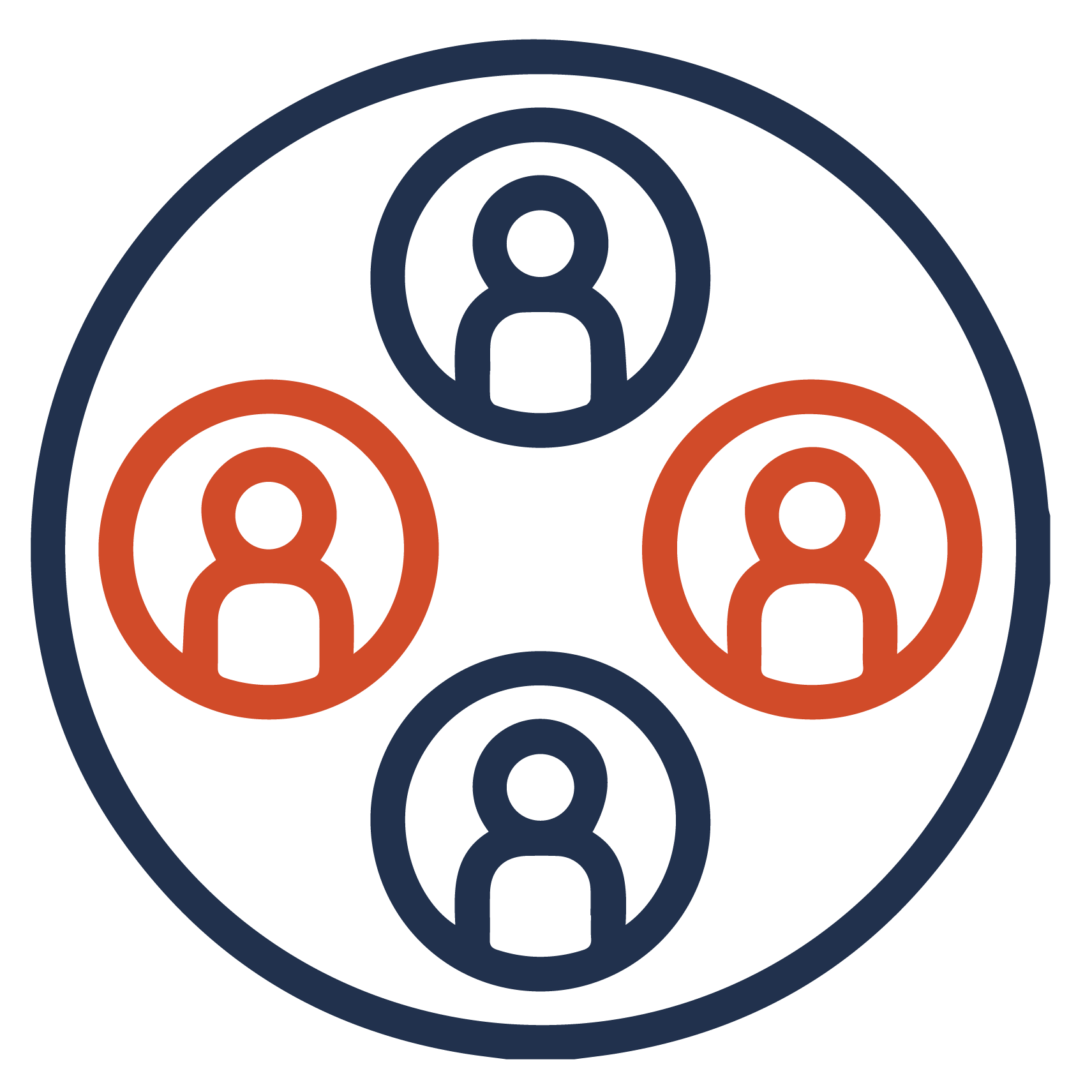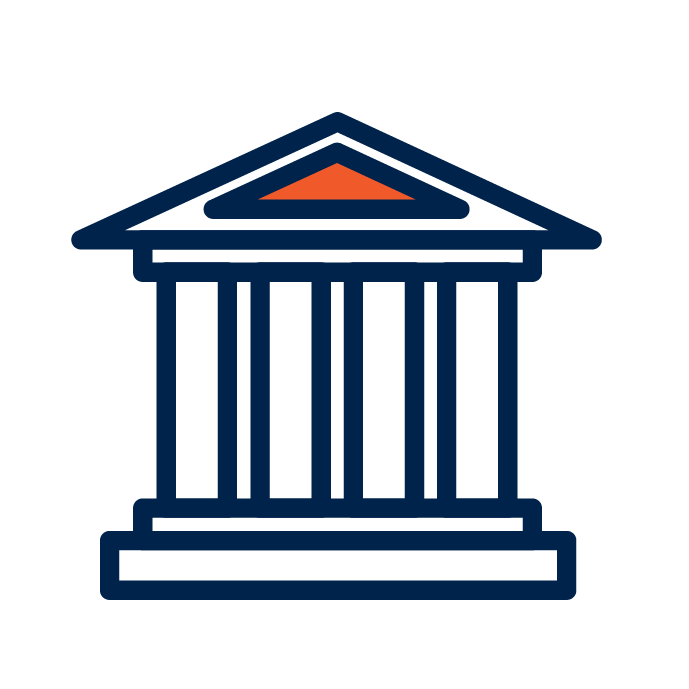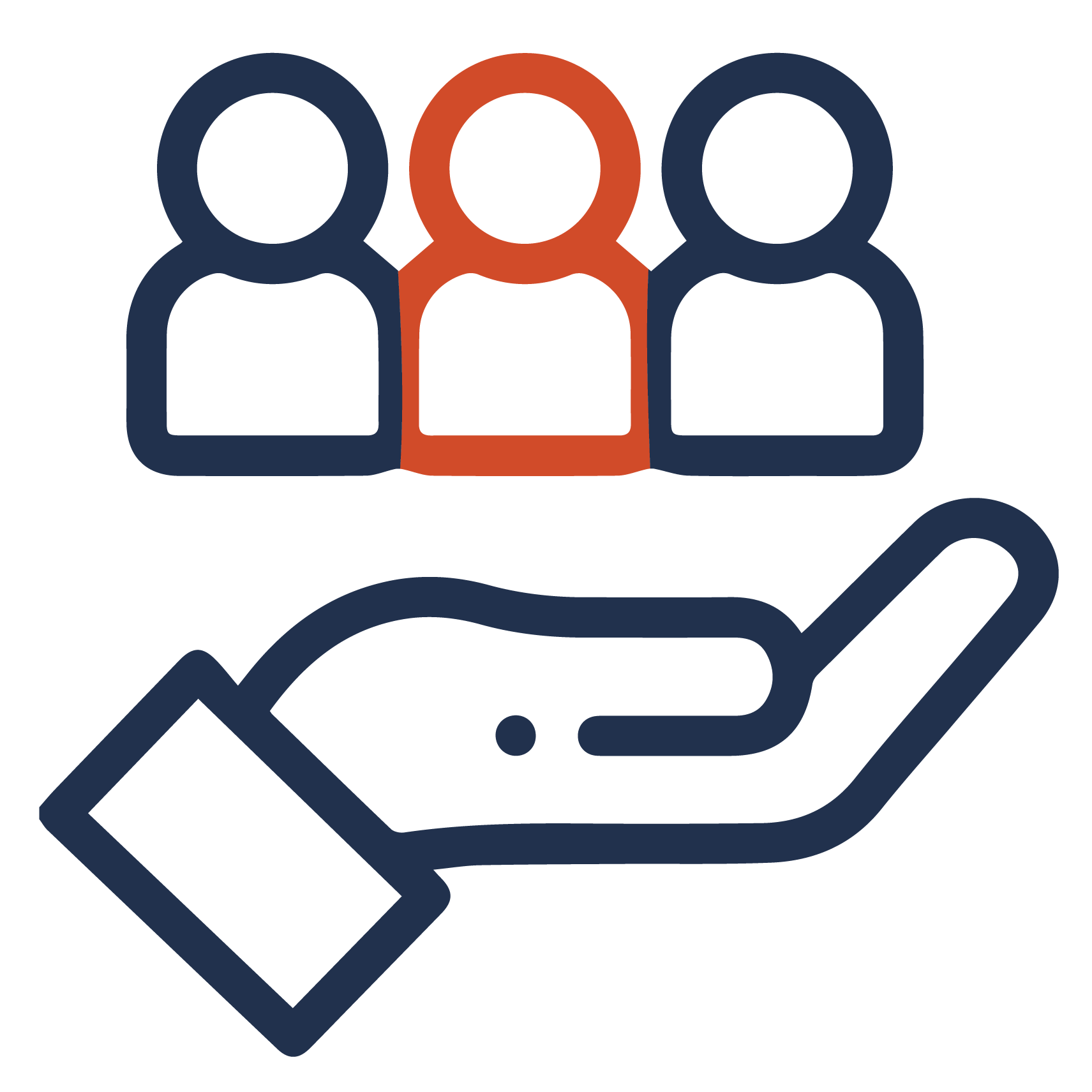Broadening Participation Resources to Support Proposals
Research Development + K-14 Outreach
Menu of Mines Broadening Participation Programs and Resources for Proposals
Colorado School of Mines has a wealth of programs and resources for broadening participation that Principal Investigators (PIs) can leverage for their research proposals. The following is a list of programs and opportunities you could collaborate with and add to the Broader Impacts section of your proposal. The idea behind this curated list of resources is not simply to check proposal boxes but to improve your proposal impact by leveraging existing programs and resources. The programs listed herein are potential collaborators; you should reach out to the contact listed early in your proposal development and define a partnership and budget before listing them in your proposal.



K-14 Outreach (K-12 & Community College)
Mines K-14 Outreach is designed to connect with K-12 schools, school districts, community colleges, and community STEM organizations, broadening access to STEM education for all. Below is a list of possible programs you might consider for your proposal’s Broader Impacts activities. Please contact the Mines office of K14 Education and Community Partnerships for the most up-to-date list. Mines K-14 office can also assist you in integrating outreach programs into your proposal, linking your research to impactful Pre-Mines programs such as SUMMET and our STEM partnerships.
To request help incorporating K-14 Outreach into your proposal, please click on the button below and complete the form. Someone from the Mines Office of K-14 Education and Community Partnerships will respond to your request.
K-12 and Transfer Student Engagement
Enrollment Management oversees several K-14 (K-12 and community college) programs that you may include in your proposal listed below. For a more detailed document of these programs please refer to the document found in the Community Impacts Toolkit HERE
- SUMMET: Summer Multicultural Engineering Training Program. Week-long residential summer camps at Mines for rising juniors and seniors who identify as underrepresented minorities, first generation, and/or female. Contact info: Louisa Duley (Admissions – Director of SUMMET), lduley@mines.edu; Michelle Fisher, EDS faculty/Academic Lead, mfisher@mines.edu; Liz Cox (faculty engagement in SUMMET)
- TRIO: Upward Bound Math and Science. A year-long college prep program in Alameda International Jr./Sr. to encourage students to pursue secondary education in STEM. Includes a four-week summer program, with one residential week at Mines. Contact info: Dari Roybal, TRIO Director, darianaroybal@mines.edu
- Colorado Community College System (CCCS) Student and Faculty Engagement: Transfer scholarships; Mines Academy at Front Range and Red Rocks Community College; Articulation Agreements with Hispanic Serving-Institutions; faculty workshops, etc.
- Partnerships with community colleges around workforce development. Aligning research with statewide STEM workforce initiatives.
- K-12 STEM Work-Based Learning. Connect your research to help K-12 students learn about related careers through tours, videos, podcasts, or presentations, mentorship and other opportunities.
For information about campus demographics and current students, please consult the new public dashboard at https://ir.mines.edu/data-visualizations/student-profiles/.
What you can do:
Please consult with the contact person listed for each of these programs with a brief description of your grant program. Depending on the type of activity that you propose, the Admissions and Enrollment team at Mines can help support data tracking of your participants, messaging about college and Mines in particular (including providing swag and handouts!), and possibly even support your participant recruitment and application process. Not only will partnership with Admissions and Enrollment management improve the quality of your program, but it is incredibly helpful for them to have data on pre-college students who might apply to Mines. Research has shown that students who have interacted with a Mines experience or been to campus have a higher rate of application and acceptance to Mines.
Cumbre Kids Spanish STEM Podcasts
Cumbre Kids produces the leading STEM podcasts for Spanish-speaking families (preK-5). Programs feature STEM professionals responding to science questions submitted by listening families. Their programs reach more than 140,000 families (as of March 2025), are free to listen to, and generate tens of thousands of hours of STEM enrichment every month. Cumbre Kids also produces K-5 teacher curricula where educational impact is important (e.g., NSF CAREER).
Cumbre Kids are experts in podcast production and science communication – researchers bring their knowledge of the topic and Cumbre Kids handles the rest. They have produced episodes featuring researchers from more than a dozen R1 universities. Spanish-speaking researchers are highly encouraged, however, the lead researcher does not need to be a Spanish speaker for their work to be featured in a podcast. Cumbre Kids can discuss translation options with you.
What you can do:
Contact Cumbre Kids to be your partner for Broader Impacts by producing a podcast episode featuring you answering questions about your research. In the episode, the researcher answers questions submitted by children about their field of study. The researcher can be a faculty member, postdoc, grad student, or science communicator. The interview is 30 minutes and the questions are in advance.
Cumbre Kids will provide a letter of support and text to copy + paste into the BI section of your proposal – including impact metrics and citations. They will also quote you the amount to plug into your budget.
Reach out to Robert Carpenter, robert@cumbremedia.com, or the RTT Proposal Support team for more information.
Girls Lead the Way (GLtW) and Girl Scout Engineering Day
The annual Girls Lead the Way conference welcomes approximately 200 high school girls to a full day event, introducing them to engineering and the Mines campus. Participants leave more aware of the wide variety of careers available to them, and more confident that they have the ability to succeed in pursuit of their passions.
Girl Scout Engineering Day, serving 4th and 5th graders, is one of the signature events for Mines Women in Science, Engineering and Mathematics (WISEM) and the Society of Women Engineers (SWE) and is an exciting and rewarding venue for members to share their love of STEM with aspiring young scientists and engineers. Approximately 100 Junior Girl Scouts attend and participate in 10 different STEM experiments.
What you can do:
For your proposal you could:
- Have project team members volunteer at GLtW existing events, supporting the activity in your field (they already have activities for most majors at Mines)
- Develop a new activity based on your research
K-12 Summer Camps & Teacher Training
Continuing and Professional Education Services (CPES) offers K-12 camps and K-12 teacher enhancement relicensure credit for professional development courses for K-12 teachers. The Student Outreach Program offers various STEM content-based camps for students in kindergarten through 12th grade, such as engineering design summer camps for high school students.
What you can do:
For your proposal, you could:
- Have project team members offer a camp for kids based on your research. These could be 1-2 day weekend camps during the school year or a week-long camp during the summer.
- Develop a new teacher professional development course based on your research.
Contact te@mines.edu for more information or visit https://learn.mines.edu/ on the web.
Summer Workshop on Energy Education for Teachers (SWEET)
Scientists and educators from Colorado School of Mines (Mines) and the National Renewable Energy Lab (NREL), plan and deliver SWEET: a 2-day workshop experience with the latest technology, customized instruction, and collaborative activities.
Teachers gain knowledge and tools on the latest energy education with lab work, lectures, and discussions on STEAM (Science, Technology, Engineering, Art, and Math) while earning 1.0 continuing education credits from the Colorado School of Mines Teacher Enhancement program. This in-person workshop takes place on the Mines campus every year in the middle of June and is co-sponsored by Mines and NREL through Nexus and the Research and Technology Transfer Office.
Topics change each year, depending on who wants to be involved and planners deciding what is the latest and great research in energy education. If your research is a part of energy education, it may make for great content at SWEET!
For more information, Carolyn Koh is the lead planner on SWEET and can be reached at ckoh@mines.edu or contact Kelly Hummel with Nexus and the Federal Laboratory Relationship manager at Mines – khummel@mines.edu
What you can do:
For your proposal, you can include the SWEET workshop on your budget and use it as the outreach requirements you may have. Provide support through your time helping to plan, create, and deliver content at the workshop, OR you can simply financially support the workshop through contributions for teacher attendees (funding teacher stipends, registration, or accrediting costs), OR you can pay for other faculty’s time who plan, instruct, and lead the workshop OR fund other event setup costs such as admin time or food and supplies.
Rocky Mountain MESA K-12 STEM competitions
Rocky Mountain MESA (Mathematics, Engineering, Science Achievement) is a statewide STEM organization for traditionally underrepresented students that provides tools, technologies, resources and collaborative partnerships with key higher education and industry professionals to optimize K-14 student preparation and success for leadership in tomorrow’s diverse STEM workforce. RM MESA recruits schools to participate in an academic yearlong STEM club or class, with an ultimate goal of competing in the MESA national engineering design competition (NEDC). The designing for equity event encompasses a range of challenges, requiring participants to devise innovative solutions to real-world problems.
What you can do:
For your proposal, you and your research team can provide career talks for the schools and/or serve as advisors for a RM MESA middle or high school team throughout the school year. Additionally, your team can volunteer to participate in the RM MESA Fall Kick-Off Workshop, which guides local teachers and graduate student mentors through the MESA curriculum, or act as judges for the end of year statewide STEM competitions.
Contact: Cynthia Howell (chowell@mines.edu) or Danielle Ladd (dladd@mines.edu)

Cultivating a Strong Learning Community
Mentoring programs
High quality mentoring programs for students and faculty in STEM yield many benefits, but unfortunately people from underrepresented groups tend to have limited access to these mentors (NASEM 2019). Ensuring that ALL members of your team have access to quality mentoring could improve climate and retention for your project team (see the NASEM 2019 report on effective mentorship).
What you can do:
You could:
- Start your own mentoring program (only recommended for very large proposals with large numbers of students, and only recommended if you follow the NASEM 2019 recommendations).
- Identify a mentoring program within your field sponsored by your professional societies, such as SWE, SHPE, or NSBE, that you can leverage.
- Leverage the NCFDD resources for professional development for students and postdocs on your team. Our institutional membership includes monthly webinars, access to dissertation services for graduate students, a wide range of career development resources, and much more.
- Connect with existing Mines mentoring programs: learn more at https://www.mines.edu/oredigger-experience/mentorship/
Mines Community Alliances
Employee resource groups (ERGs) serve as a catalyst for people to learn about other cultures, embrace differences, and appreciate the strength and value of a diverse workforce. They also align with institutional mission and vision with respect to fostering a supportive and respectful community that enables the success of our students, faculty and staff. Mines has the academic equivalent to ERGs, called Mines Community Alliances (MCAs).
What you can do:
For your proposal you could:
- Collaborate with a specific MCA. They all do different outreach and educational activities.
- Support the MCA’s professional development day; contact them to see how!
- Encourage all staff, postdocs, and faculty to participate in MCAs.
Inclusive Learning Classrooms
The Trefny Innovative Instruction Center offers a wealth of resources, workshops, and learning communities to support you in cultivating classroom environments where all students can be successful. Whether you’re integrating research topics into your classes at Mines, conducting K-12 outreach, or writing an education proposal, consider collaborating with Trefny. The Trefny Center has developed an inclusive classroom checklist that you can use to improve your classroom environment. https://www.mines.edu/academic-affairs/wp-content/uploads/sites/9/2022/08/Inclusive-Teaching-Practices-Tips-Checklist.pdf
Check out upcoming events here: https://trefnycenter.mines.edu/events/
What you can do:
In your proposal, you could:
- First and foremost, enlist the Trefny Center to consult with you on your evaluation plan and potentially be a named partner on your proposal to carry out your evaluation activities.
- Integrate a workshop on inclusive classrooms into your proposal; this option is particularly useful for education and workforce development proposals.
- The Trefny Center supports many learning communities. You could even talk to them about facilitating a unique learning community for your research team.
Continuing Education for Professionals
Continuing and Professional Education Services (CPES) offers and helps to coordinate professional development short courses, conferences, symposia, and workshops for working professionals to upgrade their technical job skills and remain abreast of recent developments in their respective fields of interest. See catalog here: https://learn.mines.edu/home-2/cpes-catalog/
and contact learn@mines.edu to collaborate.
What you can do:
For your proposal, you could collaborate with CPES to create a professional development opportunity for working professionals in the field of your research, to support workforce development.

Research Impact on Policy
Sage Policy Profile: track your impact on policy
Showcase the Policy Impact of Your Research with SAGE Policy Profile. SAGE Policy Profile is a free online tool that helps researchers discover whether and how their work has influenced public policy. By linking to your ORCID iD, the platform searches government policy documents for citations of your published research.
Link to the database: https://policyprofiles.sagepub.com/
What you can do:
Including these cited impacts can strengthen your proposal by showing a commitment to real-world impact and long-term societal benefit. Some options include:
- Demonstrate Broader Impacts: Use SAGE Policy Profile to highlight your team’s existing policy influence as evidence of broader societal relevance.
- Commit to Future Engagement: Include a plan to regularly monitor the platform as part of your knowledge dissemination strategy or broader impacts tracking.
- Articulate Policy Potential: Reference how your current or proposed research could inform policy development, using the database to underscore the potential reach of your work.

Recruitment and Hiring
Leadership Development
A supportive and respectful community can be fostered by strong leadership. As an institution of higher education, we encourage our faculty and staff to continue learning in these areas.
What you can do:
In your proposal, commit your team leadership to taking some sort of training. Some options include:
- Academic Management Institute (AMI) for women leaders. Mines sponsors up to four women. Applications are required (due early August) and acceptance is not guaranteed.
- Mines is a member of NCFDD (National Center for Faculty Development & Diversity). All faculty, postdocs, graduate students, administrative faculty and other employees at Mines have access to NCFDD’s member resources, which include a wide range of career and leadership development resources and trainings. Anyone at Mines can access the resources via our membership.
Broadening Participation via Student Recruitment
Mines’ mission is to provide the talent, knowledge, and innovations that industry and society need for prosperity. Broadening participation in STEM, with high student success across all student backgrounds, is necessary to produce the number of engineers with the preparation that industry needs.
Mines Human Resources offers on-demand courses for strategies to broaden the student applicant pool. Reach out to Rakhi Ihiga at rihiga@mines.edu for more information.
What you can do:
Undergraduate recruitment: Consider including a budget to pay for undergraduate researchers, including potential transfer students, in your team. You can collaborate with the Mines First-Year Innovation and Research Scholar Training (FIRST), Mines Undergraduate Research Fellowship (MURF), and Summer Undergraduate Research Fellowship (SURF) programs to recruit them and to leverage their wonderful professional development programming; connect with them at https://www.mines.edu/undergraduate-research/.
Graduate recruitment: Connect with your department’s graduate admissions committee and ensure that they are implementing practices to recruit broadly. Describe these approaches in your proposal. Consider including a budget to send faculty to major conferences such as NSBE and SHPE to recruit; be sure to collaborate with Mines admissions recruitment efforts taking place at the same conferences. Contact Jennifer Briggs, Assistant Dean of Graduate Studies, at jsbriggs@mines.edu.
Mines Hiring Excellence
Mines has developed a thoughtful approach to hiring the best talent to serve our students. HR helps you recruit a broad talent pool, and they offer workshops to help your hiring team understand the hiring process and how to find the best people to fill open positions.
What you can do:
In your proposal, you can describe Mines’ approach to recruiting and hiring when it comes to postdocs and research faculty positions. HR will help you advertise your job posting to wide-ranging audiences. HR helps you understand how to develop rubrics to ensure that all materials and interviews are conducted objectively. Contact HR for more information recruitment@mines.edu.
Procurement and Contracts
Mines procurement policies can support the impact of research projects on underserved communities and businesses. See Mines’ procurement policy for the latest. As of 2025, procurement encourages small, disadvantaged businesses, Woman-Owned Businesses, Hub Zone Businesses, historically black colleges/universities and Minority institutions, and veteran-owned and service-disabled veteran-owned businesses to participate in Mines’ business of procuring Goods, Services and Construction at all dollar levels.
What you can do:
In your proposal, you can describe these procurement policies and report on the number/percentage of small, Local, Minority, Women, In-State, or Hub Zone businesses that you do business with as a result of the research award. Contact Procurement Services with questions.

Assessment and Evaluation
Trefny Evaluation Resources
Evaluation and assessment of your proposed Borader Impacts activities are important in order to document the student experience and the overall impacts, and assess opportunities to improve. Meaningful assessment and evaluation should be based on appropriate metrics and are often conducted by someone external to the research team; see your RFP or FOA for specific guidance. The Trefny Center offers grant support for assessment and evaluation of proposals, particularly with respect to education and outreach efforts. They do survey design and can conduct research in your classroom. The Trefny Center also offers program-level student feedback; they can help gather and analyze feedback from students about their experience in a program to gauge what is working well and what could be improved. You can schedule a consultation to discuss opportunities.
https://trefnycenter.mines.edu/services/
